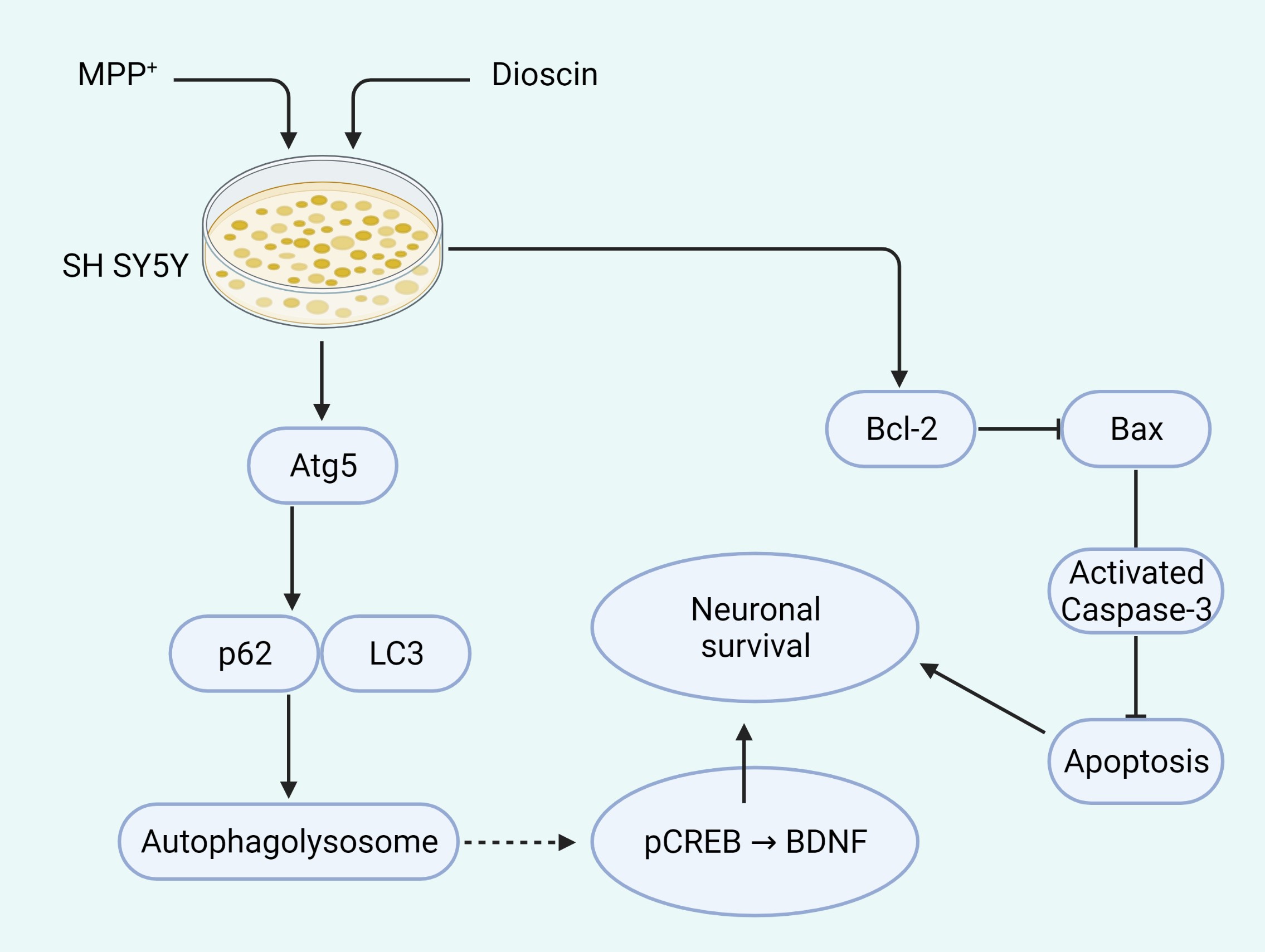Autophagy is a cellular homeostatic process by which cells degrade and recycle their malfunctioned contents, and impairment in this process leads to Parkinson's disease (PD) pathogenesis. Dioscin, a steroidal saponin, has induced autophagy in several cell lines and animal models. The role of dioscin-mediated autophagy in PD remains to be investigated. Therefore, this study aims to investigate the hypothesis that dioscin-regulated autophagy and autophagy-related genes (ATG) could protect neuronal cells in PD via reducing apoptosis and enhancing neurogenesis. In this study, the 1-methyl-4-phenylpyridinium ion (MPP+) were used to induce neurotoxicity and impair autophagic flux in a human neuroblastoma cell line (SH-SY5Y). The result showed that dioscin pre-treatment counters MPP+-mediated autophagic flux impairment and alleviates MPP+-induced apoptosis by downregulating activated caspase-3 and Bax expression while increasing Bcl-2 expression. In addition, dioscin pre-treatment was found to increase neurotrophic factors and tyrosine hydroxylase expression, suggesting that dioscin could ameliorate MPP+-induced degeneration in dopaminergic neurons and benefit the PD model. Interestingly, the neuroprotective activities of dioscin were suppressed when co-treated with chloroquine (CQ), an autophagosome-lysosome inhibitor. In summary, we showed dioscin’s neuroprotective activity in neuronal SH-SY5Y cells might be partly related to its autophagy induction and suppression of the mitochondrial apoptosis pathway.

